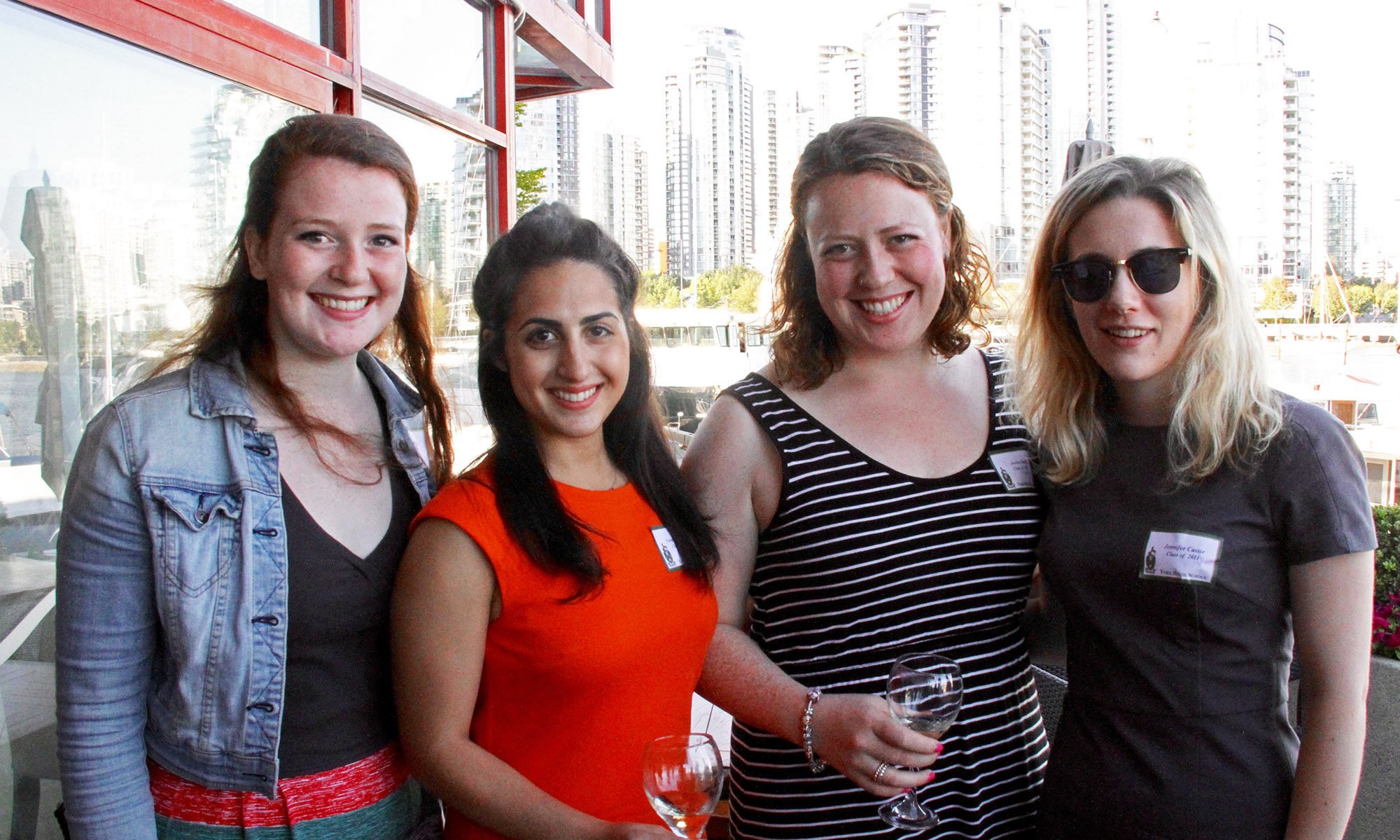 Natasha Ratanshi Stein ’09
Natasha Ratanshi Stein ’09
Natasha, what did you do after you graduated from York House School?
I moved to London after graduating York House in pursuit of a BSc in Economic History from the London School of Economics (LSE). I graduated from the LSE in 2012 and then immediately started working in the mergers and acquisitions (M&A) division at Goldman Sachs in London, where I had interned during university. After spending two years at Goldman, I moved to venture capital to work for Piton Capital, a small fund where I was the third member of the investment team and I am still there.
What kind of student were you at YHS?
To be honest, I can’t say I was the greatest student for a while. I know my mom still keeps my report cards somewhere, and I think up until around the 10th grade I had pretty average grades (I even remember something in the 50s for band when I had too much trouble waking up for morning rehearsals and never handed in my practice sheets). The great thing about York House is because of the small class sizes, it helps you find your passion, and for me that was the humanities subjects, which I realized in my last couple years at York House. Once I found that passion, and I was at a grade where there was more flexibility around picking subjects, I started to do much better as I was super excited about what I was learning about. This meant I started spending a lot of my spare time reading about the topics I was studying at school, which in turn made me a better student
How did you initially enter the investment banking field? [NOTE: I’m not in investment banking anymore, but was until 2014]
I entered finance completely by accident. My York House teachers might remember I was too much of a Marxist for Wall Street during my time there. I had gone to LSE hoping to pursue a career in international development and save the world. Suffice it to say, after attending a few career sessions in those fields I became somewhat disillusioned with the bureaucracy and I was worried about the unclear paths for progression in those fields. A friend of mine invited me to join her at a career evening hosted by Slaughter & May, a law firm, to see if law was something that interested me. What I had learned was that it wasn’t the documentation and drafting of contracts that interested me, but the financial aspects such as establishing the value of both businesses, determining the synergies, and exploring financing options. Both my parents are entrepreneurs, and being able to work with entrepreneurs and operators at a critical time for their business was something that really excited me about investment banking. Having said that, within the two years I was at Goldman, I realized my heart was with earlier stage businesses, like the ones I had been exposed to at the dinner table growing up. I had worked on some technology transactions at Goldman, which fuelled my interest in venture capital. Being closer to the operations whilst still being able to use the skills I had developed at Goldman and working in an increasingly exciting and fast-moving industry are all components in my current job in venture capital that keep me very excited.
Describe a typical day in your current position?
In venture capital, our role is to identify early stage businesses that we think are in an interesting market and at some point can provide us with attractive financial returns. Piton Capital, where I work now, is one of the few extremely specialized venture capital funds in the world. We only invest in online businesses that benefit from network effects, which means the product or service improves as more people use it. The job varies enormously day to day, so it’s very hard to describe a typical day. I would say if I had to crudely break it up, I spend about 30% of my time in meetings with entrepreneurs who are pitching their businesses, 40% of my time analyzing companies and conducting diligence and 30% of my time managing our existing portfolio, where I help them with strategic advice, sit on their boards and act as an advisor for decisions such as recruitment, new market expansion, pricing etc. I am usually travelling around once a week, mostly across Europe as we invest actively in markets such as Germany, France, Poland, and the Nordics. We’ve also done deals in Egypt and Pakistan.
Do you see yourself staying in London or moving back to North America?
It’s very hard to answer this one and attempting to answer will either anger my parents or my current employers so I’ll decline to comment.
You were recently listed in the 2018 30 under 30 Forbes Europe – Finance List. Tell us more about that experience?
It’s humbling to be recognized in a list which also includes Kendrick Lamar, my favourite rapper. When I’m home, I frequently drive around Vancouver blasting his song “Humble”, and the Forbes inclusion has reminded me to take the (explicit) advice in that song seriously. Life can be so hectic that it can be hard to take a step back and reflect on your achievements so being part of this list was a good opportunity to do that. More than anything, the outpouring of good wishes it triggered was a reminder of how many people have supported me and how grateful I am to them.
Will Brexit have any impact on your career path?
Brexit is destabilizing for both the UK economy and its social fabric. My career, along with many others, benefit from the diversity and talent that Britain has embraced over the last fifty years. The Brexit vote has brought to the surface many divisions in British society and has taught us that unfortunately, many of the benefits of being an open and tolerant nation seem to be at risk. From a career perspective, many of the UK’s top entrepreneurs are migrants, from the EU and elsewhere, and many British businesses have been built by the hard work of migrants. My fund invests across Europe with our most active market being Germany, so we are not directly impacted by Brexit in any major way. We are already starting to see new hubs of activity emerge in more European cities and Europeans move back to their countries of origin. While I think this will be detrimental to the UK, our flexibility around investing across Europe will still enable us to continue to invest in the most promising companies and back the best entrepreneurs. The UK faces a lot of uncertainty in the coming years, and it’s my hope that the voices calling for a more tolerant and open society don’t lose out to those seeking to divide.
Did any one person or teacher influence you at YHS?
Absolutely. It would be impossible to pin it down to one person. York House is a place that really enables it’s students to find their passion. When I found my passion, there were countless teachers who were there to make sure I was achieving my potential. Mr Cropley, who would do weekend cram sessions with us ahead of our AP European History exam and who I am still in close contact with for when I need to ensure my career doesn’t pull me away from my socialist roots. Ms. Irani, who was extremely supportive in helping me navigate the nuances of applying to a UK university. When LSE required 5s on five AP exams despite the fact I was only doing four AP classes, I dropped math in order to teach myself AP World History. LSE didn’t like that and informed me only two months before the math provincial I had to complete math. Thankfully Mrs. Massel was there to rescue me and taught me the entire Math 12 curriculum in two months. I would say one of the best classes at York House was Mr P’s AP Human Geo class which really opened my eyes to the functioning of society and how rap music conveys societal workings (maybe this is what inspired me to start taking Kendrick Lamar so literally!)

